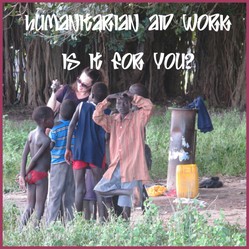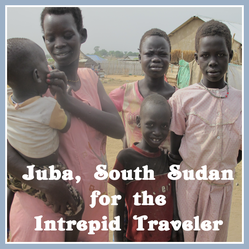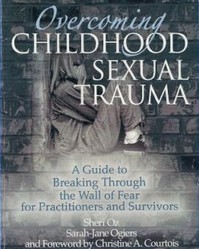Juba, South Sudan, in Photos
Sample photos I took during my time in Juba. This is no small accomplishment since, while photographing anything but official buildings and security workers is no longer illegal, the police and army apparently have not heard that and they will confiscate cameras if they see you taking pictures.
Risks to Humanitarian Aid Workers in Sub-Saharan East Africa
Describes the dangers an aid worker in East Africa may face and the ways to keep safe. These dangers include poisonous insects, spiders and snakes, disease, violent crime and emotional distress.
The Turkana Tribe of Northern Kenya
A fascinating tribal peoples of Northern Kenya, with a related tribe in Eastern South Sudan. I have just begun to explore the nature of these people and their culture.
Kakuma Refugee Camp, Safe Haven or Human Warehousing?
Built 25 years ago to help those fleeing the war in South Sudan, this camp now houses refugees from many African states, some of whom have not found asylum and some children born in the camp are still there as adults.
Traveling South Sudan Roads
The decades of war have prevented this country from establishing the infrastructure most countries take for granted. It is definitely a challenge to travel the roads of South Sudan.
Inspirations from South Sudan
The optimism and energy of the South Sudanese people is contagious. Their pride and determination to build a healthy nation are inspiring. It affected me personally.
Juba, South Sudan, for the Intrepid Traveler
South Sudan is not yet set up for tourists. It is not yet set up for its own inhabitants either. But the adventuresome traveler, who is prepared for difficulties and primitive conditions, can have an amazing experience here. Let's just start with the capital city, Juba.
Safari in Nimule National Park, South Sudan
Not set up for tourists, the only people who come to the park so far are humanitarian workers in various organizations. You will not see many animals, but it is an experience worth having - you WALK in the park!
Ten Reasons and More to Visit Nairobi National Park
I was surprised at the large number of animals it is possible to see in this park. It is actually in Nairobi, but open to the animals' natural migratory routes. If you cannot get out to one of the larger parks, this is a definitely "must-see" site.
Kazuri Handmade Beads From Kenya
A factory set up to provide employment for single mothers, the Kazuri factory is a great place to visit for a couple of hours. This article shows you the process of bead-making as you will see on a free guided tour of the factory.
Have You Ever Visited a Maasai Homestead?
Determined to see close-up how the Maasai live, I actually managed to do it! With a driver from Nairobi who was doubtful, we made contact with a young Maasai man who took us to his family's homestead.








 Visiting an Art Gallery With a Two-Year-Oldon 07/27/2015
Visiting an Art Gallery With a Two-Year-Oldon 07/27/2015
 Using the News to Enhance Jewish Identity in Jewish Kidson 07/24/2015
Using the News to Enhance Jewish Identity in Jewish Kidson 07/24/2015
 Xi'an - Not Just Terracotta Warriorson 06/09/2015
Xi'an - Not Just Terracotta Warriorson 06/09/2015
 Sew Your Own Wedding Dress - or Your Daughter'son 02/06/2015
Sew Your Own Wedding Dress - or Your Daughter'son 02/06/2015



Comments and Questions
Thanks so much for this vote of confidence in my article and responses to readers. Much appreciated.
Such an interesting bird's-eye view of this career -- a career which easily is idealized, until one actually is there, elbow- and knee-deep in the moment-to-moment realities. Humanitarian work can be a very fulfilling career, and your commitment is clear.
I also noticed all the comments from those interested in pursuing humanitarian work as a career. Your succinct presentation and helpful responses surely are appreciated.
I agree with you fancytoughboots. Unfortunately, even having had Peace Corps or similar experience when young, when in that fancy apartment with a fat salary, that previous sensitivity can be lost as a different kind of pragmatism takes over.
Thanks for your comment and for sharing.
Thanks, Jess. It's always fun meeting others who do what we do.
Thanks, VioletteRose. It is me who is the privileged one being able to have adventures and be useful at the same time.
I really appreciate you, it is really challenging. Thanks for sharing this great article.
No problem, pastrani - you can find my private message button on my profile page.
Hi Sheri,
I grew up in the world of development and relief and I have always intended on working in it so I studied and traveled as much as possible and now I am really trying to make a push for a job. I am looking specifically at South Sudan as my point of entry (which brought me to this article) and I was wondering if I could contact you privately somehow? I have a BA (Economics), a Bachelor of Business, a PG Dip in Development Studies and a Grad Cert in Social Anthropology and I have lived 15 of my 29 years in Asia, South America and Europe (with the rest in NZ). I have a small amount of savings and I am considering the possibility of flying to South Sudan and trying to find my feet.....
@Kavish W. I'm glad you found the article helpful. If you want to work in humanitarian aid professions, I suggest you explore the website: http://www.devnetjobs.org/ because they list qualifications for the variety of jobs available. You can also talk with a careers adviser at your college who should be able to give you more ideas.
Good luck in your studies.
Hi Sheri. Brilliant article. (hopeful) future aid worker/ humanitarian here and I was looking for a resource like this.. especially about the downsides of the field. Anyway, I'm going to be starting College next year. I still haven't decided on a Major yet, although I am considering a few such as; International Relations, development, Social Anthropology or something in the ICT field. Those are all interests of mine and will (hopefully) allow me to take managerial positions/ desk jobs (don't really see being in the field forever)
Any suggestions or pointers?